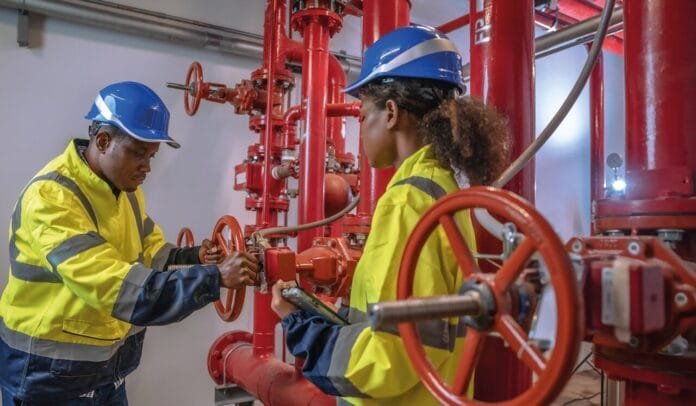The Government of Mozambique is undertaking a review of Law No. 21/2014, of 18 August, with the aim of strengthening the State’s participation in petroleum projects and establishing a clearer and more comprehensive regulatory framework. This initiative is aligned with the Government’s Five-Year Plan, which foresees a phased expansion of hydrocarbon exploration, including the award of ten new concession areas and an increase in research contracts from seven (7) in 2024 to sixteen (16) by 2029.
Key Proposed Amendments
Expansion of Scope to Include Carbon Capture and Storage (CCS)
The proposed review expands the scope of the law to include carbon capture and storage (CCS) as part of petroleum operations, explicitly recognizing this practice within the legal framework. Furthermore, it confirms that CCS activities may take place beyond Mozambique’s borders, provided they comply with international law.
Strengthening of State Participation
The current law grants the State and the National Hydrocarbon Company (ENH) a decisive role in petroleum operations, but does not establish an explicit minimum participation interest. The proposed amendment seeks to grant the State a non-dilutable minimum 40% stake in concession contracts covering proven and viable areas, exercised through ENH. Importantly, the State’s share will be financed by other concessionaires until the commencement of production.
Enhanced Regulatory and Audit Powers
The proposed amendment grants the Petroleum Regulatory Authority (generally the National Petroleum Institute – INP) expanded and clarified powers of oversight, including the authority to supervise and audit petroleum operations at any time, notably regarding cost recovery claims. To this end, the holder of rights to carry out petroleum operations must periodically update reports on recoverable costs in accordance with established regulatory standards and make them available for inspection.
Community Rights and Social Responsibility
The proposal largely retains the core principles of the current framework regarding community engagement and compensation. It reinforces that prior consultation with affected communities must be free and informed, and that fair compensation should be formalized through a memorandum of understanding between the government, concessionaires, and communities. Benefits, such as remuneration for property improvements and socio-economic support, remain unchanged, but human rights, as well as the nutritional and personal security of affected individuals, must now be explicitly considered. A key innovation is the explicit reference to “definitive resettlement,” permitted only after confirmation of the commercial viability of the resource—a clarification aligned with prior practice, though it may implicitly allow for temporary resettlement measures prior to that stage, raising new questions about the timing and nature of displacement.
Promotion of Local Content
The proposed amendment introduces greater detail and specificity in local content obligations. Provisions requiring concessionaires to include workforce and succession strategies in their Local Content Plans—ensuring the hiring, training, and progressive promotion of Mozambican nationals across all project phases—are maintained but now with greater specificity and clearer implementation requirements.
The review also mandates training plans aimed at increasing national participation, requires foreign legal entities to demonstrate that partnerships with Mozambican companies generate real value within the country and involve local stakeholders, and obliges them to present technology transfer plans. Furthermore, original equipment manufacturers providing operations and maintenance services must now establish a local presence through partnerships with Mozambican firms. These measures may increase operational costs for operators and require careful planning to integrate local suppliers without compromising operational quality.
National Valorization and Revenue Sharing
Another substantive innovation illustrating the State’s prioritization of national interests is the establishment of a locally adjusted price for domestic gas to promote industrial growth, alongside the new requirement that all condensates be allocated to ENH for marketing, use, and national development.
Simultaneously, the proposal maintains and clarifies the requirement that at least 25% of production (including LNG) be reserved for the domestic market, with ENH playing a central role in marketing these volumes. An additional measure, which does not impose any burden on concessionaires, is the allocation of 10% of petroleum tax revenues to provinces, districts, and local communities hosting petroleum projects—a measure aimed at fostering local development and potentially improving socio-economic and political conditions in project areas.
Environmental Accountability
The proposed amendment does not introduce major changes regarding environmental obligations: an Environmental Impact Assessment remains mandatory, and environmental liability continues to apply where harm occurs. However, it introduces objective liability for environmental damage, public health incidents, or infrastructure harm resulting from petroleum operations conducted without a valid license. It also explicitly addresses marine infrastructure safety requirements and mandates the creation of decommissioning funds. Criteria for these funds will be regulated in a separate legal instrument to be developed by the competent authority.
New Contractual Mechanisms and Renewals
A notable contractual innovation is the reduction of the exclusive development and production right from 30 to 25 years, with the possibility of renewal for an equal or shorter period. The innovation lies not only in the express time limit but also in the requirement that any renewal be justified based on technical grounds, economic viability, and alignment with national interest.
Outlook and Investor Considerations
Overall, the proposed revision of Mozambique’s Petroleum Law aims to better integrate petroleum operations with national development goals, strengthen government oversight, and increase transparency across all stages of exploration and production.
In practice, the stronger role of the State, mandatory local content obligations, and stricter environmental requirements are likely to increase operational costs and add regulatory layers that will require strategic planning and careful management. However, these measures may also provide greater regulatory clarity and community support, potentially underpinning a more predictable operating environment in the long term.
International oil and gas stakeholders considering ventures in Mozambique are advised to assess the full impact of mandatory State participation, local partnerships, and social engagement requirements, balancing higher upfront financial commitments against the prospect of stability and sustained investor confidence in a rapidly growing hydrocarbon sector.
Source: PLMJ




